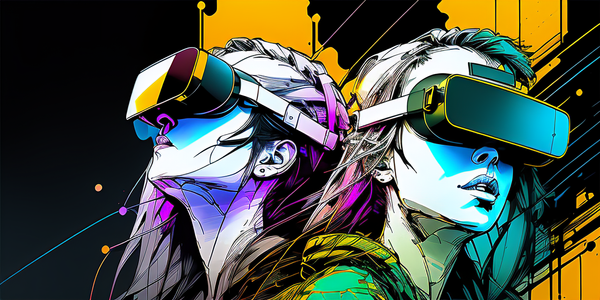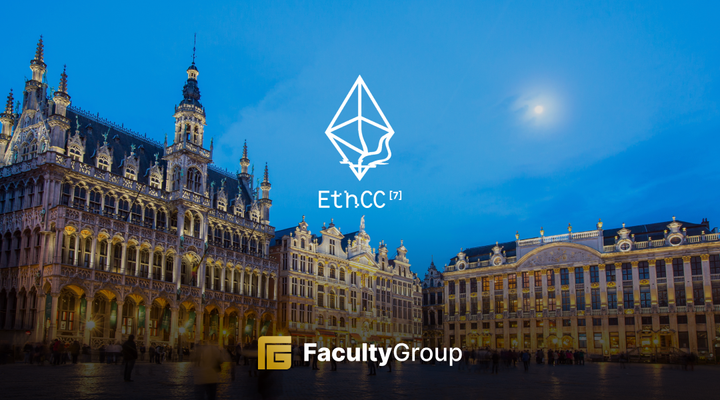Metaverse - A white knight or a pipe dream?

Since 2020, there has been quite the web3 hype cycle around the Metaverse. Although this is not part of Faculty Group’s investment thesis, many well-known VCs have invested heavily in projects designed around the emergence of the Metaverse, betting this would be the next bull cycle after DeFi. But what is the Metaverse: a concept, a movement, a white knight or a pipe dream?
The concept
In web3, the metaverse as a concept represents immersive virtual worlds which incorporate the immersive environments of virtual reality (VR), engaging playability like gaming and networked activities of social media platforms (like discord). These worlds use blockchain infrastructure to enable value exchange using tokens or NFTs and represent the next phase of blockchain-based games on the internet. Unlike Zuckerberg’s big gamble of going all in with Meta’s VR development, many projects aspire to make these virtual worlds a reality. They are firmly convinced of the value-added they can bring to creators, artists, gamers and social media communities.
The movement
Over the last two years, we have seen a growing backlash against tech firms using ‘surveillance capitalism’ to harvest individuals’ data through their platforms or third parties. They then use this data to sell and serve targeted paid advertising via our devices. This data harvesting is sometimes referred to as surveillance capitalism.
Companies such as Alphabet, Amazon, Google and Meta etc., are making money not just from what they can sell us in terms of products or services but from what they can learn about us through our meta-data and behaviours online. These large data sets give them great power to deliver advertising personalisation at a scale unheard of before in human history. Many people no longer want to exist in this digital world controlled and policed by these large companies. Nor do they want to share their data but rather control it for their use or gain if it has monetisation potential.
For many, the Metaverse is a movement towards owning our digital privacy and data and a concept that can give more power back to those who design and create both virtual worlds. Proponents see the possibility of creating a new online internet-based community where people design, build, play and learn in worlds they collaboratively design and share with like-minded community members, gamers, developers or creatives.
The white knight
Web3 metaverses incorporate blockchain into their underlying technology and digital assets, such as tokens or NFTs, and their ecosystems, such as Decentraland, Axie Infinity, and The Sandbox. While immersive environments have existed in multiplayer online gaming for some time, incorporating blockchain-based digital assets and virtual reality (VR) alters who can participate and what experience they can create. It also demonstrates the real-world market value of assets, interactions, and experiences earned in digital blockchain games or events.
Metaverse digital assets and items — such as digital land, objects, and in-game merchandise, for example — are typically represented by NFTs. Their ownership is recorded on the blockchain and can even be exchanged for digital assets on decentralised exchanges (DEXs). These can also be linked to real-world discounts or fan engagement metrics. Various companies and brands are currently moving into this digital world to experiment and proto-type different experiences for fans, customers, artists and creatives. For example, Decentraland regularly hosts live music events, conferences, and social meetups.
Decentralisation opens a more equitable engagement for participants. Ownership is shared, and users govern these immersive worlds using decentralised autonomous organisations (DAOs) and governance tokens. Online in-world items are registered and provable on-chain through NFTs. These can be traded in the real world via DEXs and NFT marketplaces.
A pipe dream?
Many sceptics believe consumers do not want virtual-only experiences after the pandemic, this generation's greatest online world experience. Also, as consumers have returned to the real world of work and social interaction, online engagement across these decentralised metaverses has fallen. The monthly active users of Decentraland are down, and their trading volume has decreased from an all-time high in 2021. Web3 is all about embracing the potential of blockchain technology to drive innovations that create real value for users and investors. Users are more excited than web3 investors about its potential.
At Faculty Group, we build fuel and grow the game changers of tomorrow. Hype is great for speculation and riding the wave, but building a new decentralised immersive world with use cases and economies will take time. The key will be user acquisition and traction to make these worlds successful as economies or platforms for value creation.








